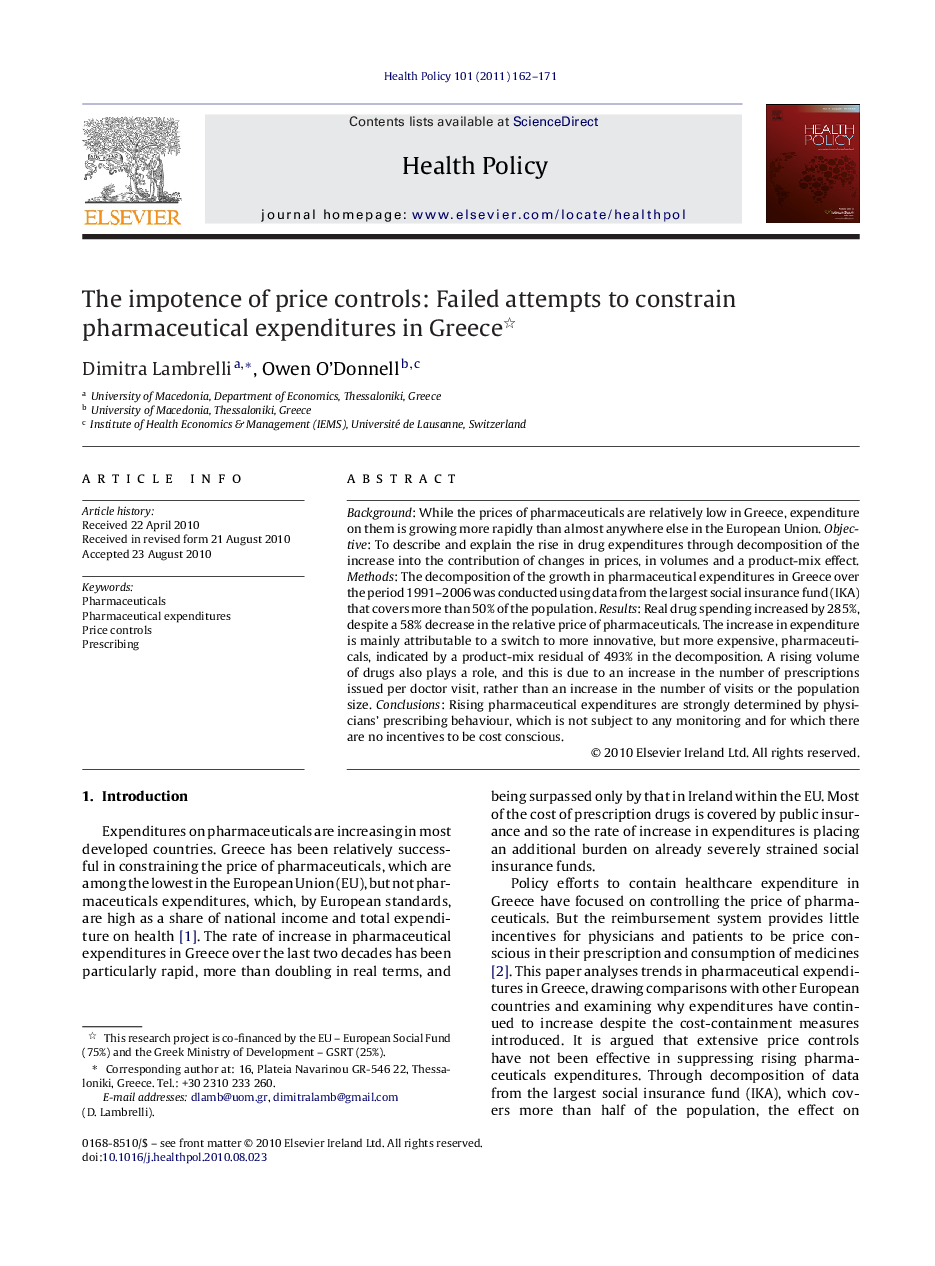| کد مقاله | کد نشریه | سال انتشار | مقاله انگلیسی | نسخه تمام متن |
|---|---|---|---|---|
| 4198051 | 1279035 | 2011 | 10 صفحه PDF | دانلود رایگان |

Background: While the prices of pharmaceuticals are relatively low in Greece, expenditure on them is growing more rapidly than almost anywhere else in the European Union. Objective: To describe and explain the rise in drug expenditures through decomposition of the increase into the contribution of changes in prices, in volumes and a product-mix effect. Methods: The decomposition of the growth in pharmaceutical expenditures in Greece over the period 1991–2006 was conducted using data from the largest social insurance fund (IKA) that covers more than 50% of the population. Results: Real drug spending increased by 285%, despite a 58% decrease in the relative price of pharmaceuticals. The increase in expenditure is mainly attributable to a switch to more innovative, but more expensive, pharmaceuticals, indicated by a product-mix residual of 493% in the decomposition. A rising volume of drugs also plays a role, and this is due to an increase in the number of prescriptions issued per doctor visit, rather than an increase in the number of visits or the population size. Conclusions: Rising pharmaceutical expenditures are strongly determined by physicians’ prescribing behaviour, which is not subject to any monitoring and for which there are no incentives to be cost conscious.
Journal: Health Policy - Volume 101, Issue 2, July 2011, Pages 162–171